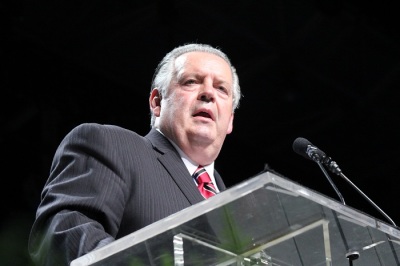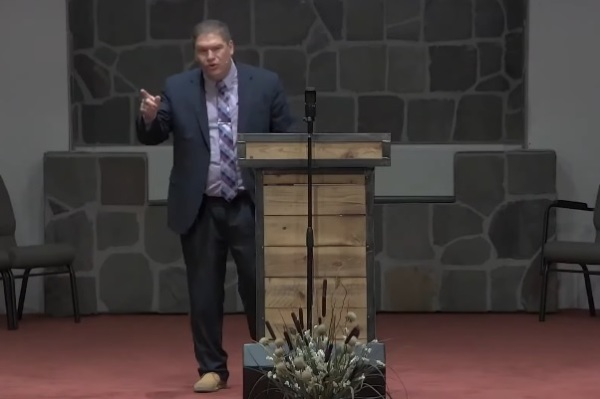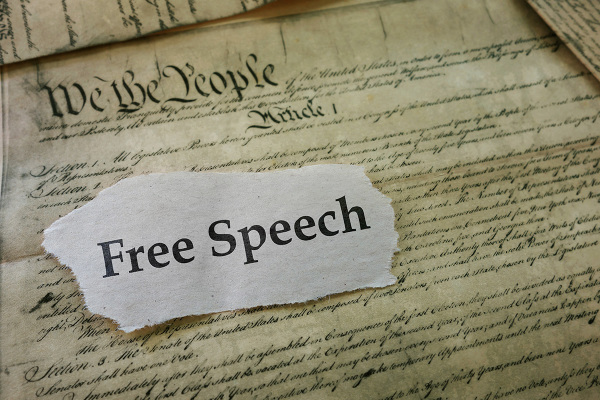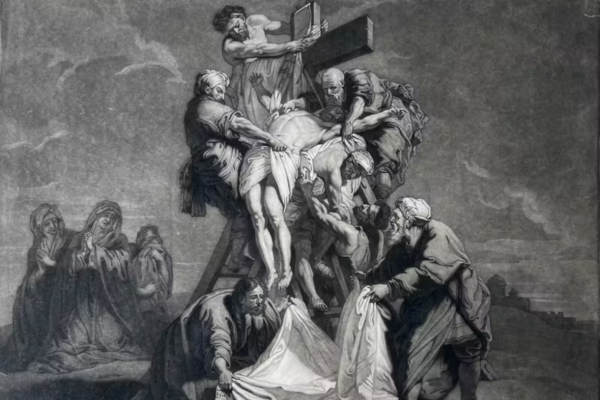Ask Dr. Land: Why is Thanksgiving such an important opportunity?

This is the week that Americans from coast to coast cease their workaday activities and gather with friends and loved ones for Thanksgiving. It is a time-honored ritual, observed by the overwhelming majority of Americans. Alas, this year such gatherings are severely restricted by the Covid pandemic, but thankfully with vaccines on the way we can look forward to a resumption of this tradition next year.
What are the origins of this celebration, and what meaning should it have for Americans today? Thanksgiving is a combination of two long-standing traditions in Anglo-American civilization, the joyous harvest festival and the more somber declaration of a day of prayer or thanksgiving in the midst of some national crisis.
The origin of the present American Thanksgiving, spiritually and emotionally, harkens back to the 1621 observation of a thanksgiving and harvest celebration by the Plymouth settlers in Massachusetts. These English “pilgrims” left Plymouth, England on September 6, 1620 for the New World seeking religious freedom. After a little more than two months at sea, they landed in what is now Massachusetts. After signing the Mayflower Compact, the first document to introduce self-government to the New World, they disembarked from the Mayflower and began their settlement. They faced a very harsh New England winter.
Unprepared for the brutal environment they faced, half the settlers died before spring. However, with the help of Native Americans, they planted crops and reaped a sufficient harvest to carry them through the second winter in the New World. It was now clear that they would not starve. So these 17th century Christian Pilgrims held a feast of Thanksgiving to God for His beneficence and favor. The three-day celebration commenced on December 13th, 1621, and included many of their Native American neighbors who had been so hospitable and helpful to them in their quest to survive.
Phillip Edward Winslow drew the following word portrait of this first Pilgrims’ Thanksgiving:
Our harvest being gathered in, our Governor sent four men on fowling (or bird hunting) so that we might after a special manner rejoice together after we had gathered the first fruit of our labors. They four in one day killed as much fowl as . . . served the company almost a week. . .many of the Indians coming amongst us, and. . .their greatest king Massasoit, with some ninety men, whom for three days we entertained and feasted, and they went out and killed five deer, which they brought . . . . by the goodness of God, we are far from want . . . .
In 1777 in the midst of the American Revolution, the first official national Thanksgiving celebration was declared by the new nation that had declared its independence from Britain the year before. In October 1789, the head of the recently founded new federal government, George Washington, issued the first Presidential Thanksgiving Proclamation as a day of thanksgiving to that “great and glorious Being, who is the Beneficent Author of all the good that was, that is, or that will be.” President Washington went on to declare that both houses of Congress asked him to recommend to the people of the United States a day of public thanksgiving and prayer, to be observed by acknowledging with grateful hearts the many and single favors of Almighty God, especially by affording them an opportunity peaceably to establish a form of government for their safety and happiness.”
President Abraham Lincoln was the second president to be closely identified with Thanksgiving. In 1863 President Lincoln declared “a national day of Thanksgiving.” President Lincoln made this declaration in the darkest days of the Civil War in the immediate aftermath of the Battle of Gettysburg, July 1-3, 1863, and just days after visiting the haunting, still battle-scarred battlefield at Gettysburg where he had delivered the timeless Gettysburg Address on the site where 50,000 Americans had perished in three days earlier that year.
In 1941 as the war clouds of World War II gathered ominously on the horizon, Congress permanently established Thanksgiving on the fourth Thursday of each November as a national holiday. Thanksgiving has been part of our national story from our Pilgrim forefathers forward. Clearly, even in the darkest days during the Revolution, the Civil War and two long world wars, Americans have felt the need to pause and thank their God for His blessings and to invoke His protection and watch care over our nation. However, Thanksgiving can also be an opportunity to experience spiritual renewal and we contemplate all the many things we have for which to be thankful.
As a Christian, I encourage all of you as fellow Christians to undertake a spiritual exercise this Thanksgiving which I have found to be a tremendous blessing. The Apostle Paul commanded us as Christians to “in everything give thanks, for this is the will of God in Christ Jesus in you.” (I Thess. 5:18).
I promise you that when you start giving thanks to God for the blessings and circumstances in your life, God will keep calling new blessings to mind and you will find that there are so many more things to be thankful for than you have thought of or imagined. As you are obedient in this apostolic commandment, God will create in you an even more grateful heart, and the grateful heart is the contented and peaceful heart. So this Thanksgiving may His peace be with all of you.
Speaking personally, my son has been quite seriously ill the past few months. And I asked myself what do I have to be thankful for in this situation, but I decided to be obedient and give thanks. Immediately several new thoughts ran through my hardened mind. Thank you that I have a son. Thank you that my son is alive. Thank you that he has something from which he can recover. Thank you that we live in a country where he can get the treatments he needs. Thank you that he knows you as his personal savior. Thank you that he has a mother who is more than willing to help nurse him back to health. And the list goes on.
Finally, the close proximity of the American Thanksgiving to Christmas provides us with the supreme reason for having an attitude of gratitude. At Christmas we celebrate the greatest gift ever given (John 3:16). The cross always casts a shadow over the manger. Christ came to die for our sins and to redeem us to everlasting life. This is known as the “great exchange.” Jesus came and took all of our sin and guilt on the cross and gave us all of his righteousness to those that accept this sacrifice, He gives the power to become the children of God (John 1:12). No one has more to be thankful for than the Redeemed. No one has more reasons for an attitude of gratitude at Christmas than those of us who have experienced redemption and forgiveness of sin and have been made “joint heirs” with Him. So let us all covenant together to let Thanksgiving be the commencement of a season of thanksgiving for all that God has done, and is doing, for all of us and with Christmas being culmination of a season of gratitude and praise to our Heavenly Father.
Dr. Richard Land, BA (magna cum laude), Princeton; D.Phil. Oxford; and Th.M., New Orleans Baptist Theological Seminary, was president of the Southern Baptists’ Ethics & Religious Liberty Commission (1988-2013) and has served since 2013 as president of Southern Evangelical Seminary in Charlotte, NC. Dr. Land has been teaching, writing, and speaking on moral and ethical issues for the last half century in addition to pastoring several churches. He is the author of The Divided States of America, Imagine! A God Blessed America, Real Homeland Security, For Faith & Family and Send a Message to Mickey.






















